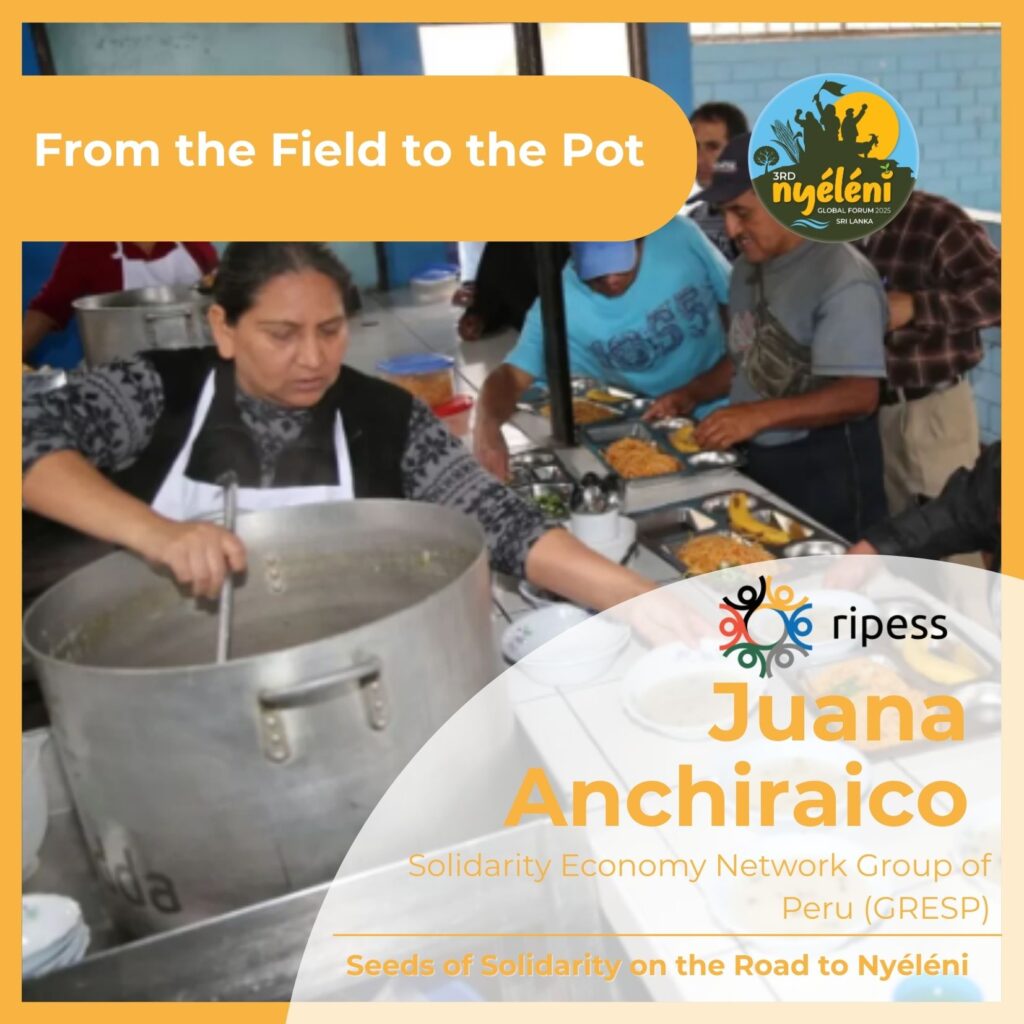
From San Juan de Lurigancho, the most populous district in Peru, Juana Anchiraico Uscuvilca shares a story rich in knowledge, conviction, and networks woven by women. Alongside other women leaders, Juana is part of GRESP (Solidarity Economy Network Group of Peru), promoting a model of community resistance that begins with communal kitchens and moves toward food sovereignty.
In a territory marked by extreme poverty, forced migration from the Andean regions, and structural violence, more than 300 popular kitchens and communal pots are organized in a decentralized way to feed thousands of vulnerable families. The protagonists are women who cook, educate, and care—but also manage, innovate, and transform.
A Community That Feeds and Is Fed
These kitchens offer more than hot meals: they are spaces for training in nutrition, neighborhood coexistence, solidarity economy, and schools for mothers and fathers. Consumer families, whose incomes are insufficient to afford restaurant meals, find balanced food and shared dignity here.
From the Field to the Pot
Many of the ingredients used in these kitchens come directly from women farmers in Puno, Piura, and Huaraz, coordinated with the World March of Women. This rural-urban alliance shortens the food chain, promotes fair prices, and strengthens the local economy. It is a concrete practice of food sovereignty.
Solidarity Economy as a Response
The COVID-19 crisis and neoliberal policies deepened hunger. What began as an emergency response became a permanent project. GRESP promotes the care economy and solidarity economy as pillars to sustain bodies, relationships, and territories.
Many women entrepreneurs, often from the kitchens, receive training in trades such as textile production, baking, crafts, and weaving. With support from the Solidarity Economy Initiative Group of SJL (GIES SJL), local fairs are organized with municipalities so producers can sell their goods and generate income.
Political Advocacy and Concrete Proposals
Together with the Governance Pact of SJL, a municipal ordinance for Social and Solidarity Economy is being promoted to create an “Entrepreneur Corridor” where local products can be showcased and sold. The campaign “Consume What Your Region Produces” also seeks to establish agreements with the Ministry of Agriculture and Produce to bring agroecological foods from the regions at accessible prices.
What Juana Brings to the Nyéléni Forum
Juana arrives at the forum with a clear conviction: hunger is not an individual problem—it’s a collective challenge. In her bag, she carries years of experience building trust in communities, promoting dialogue as the foundation for transformation. She represents 13 organizations working nationally, in coordination with RIPESS LAC, to build an economy that puts life at the center.
“The territory is the place where we live, where we build trust, and where we understand that food is not a personal or family issue—it’s a community issue.”


